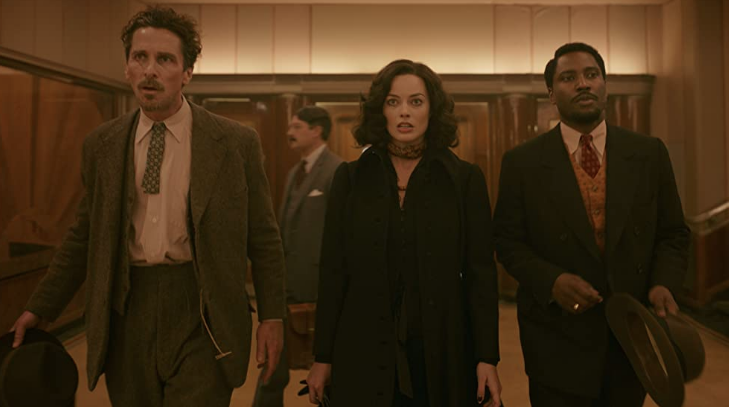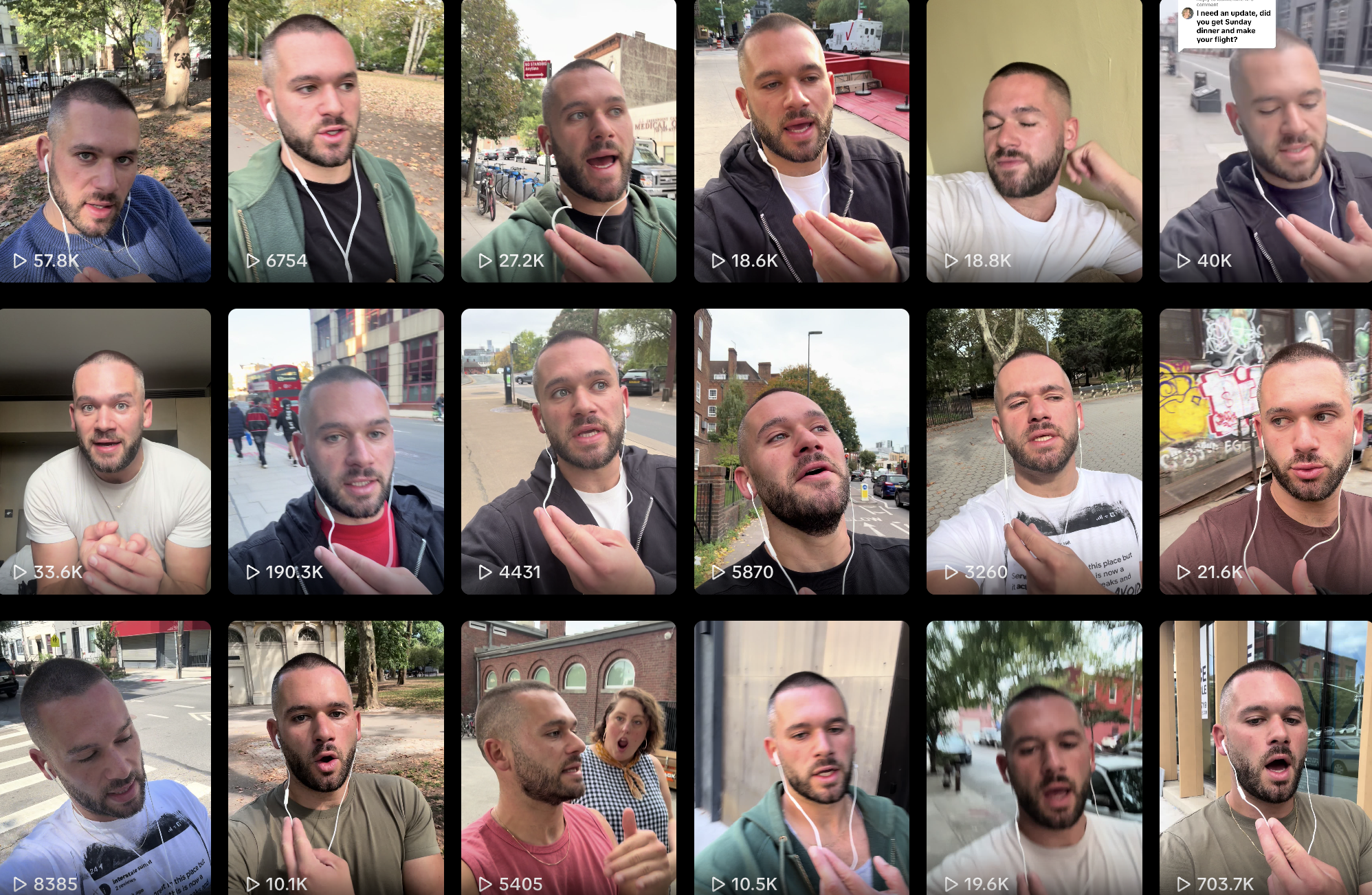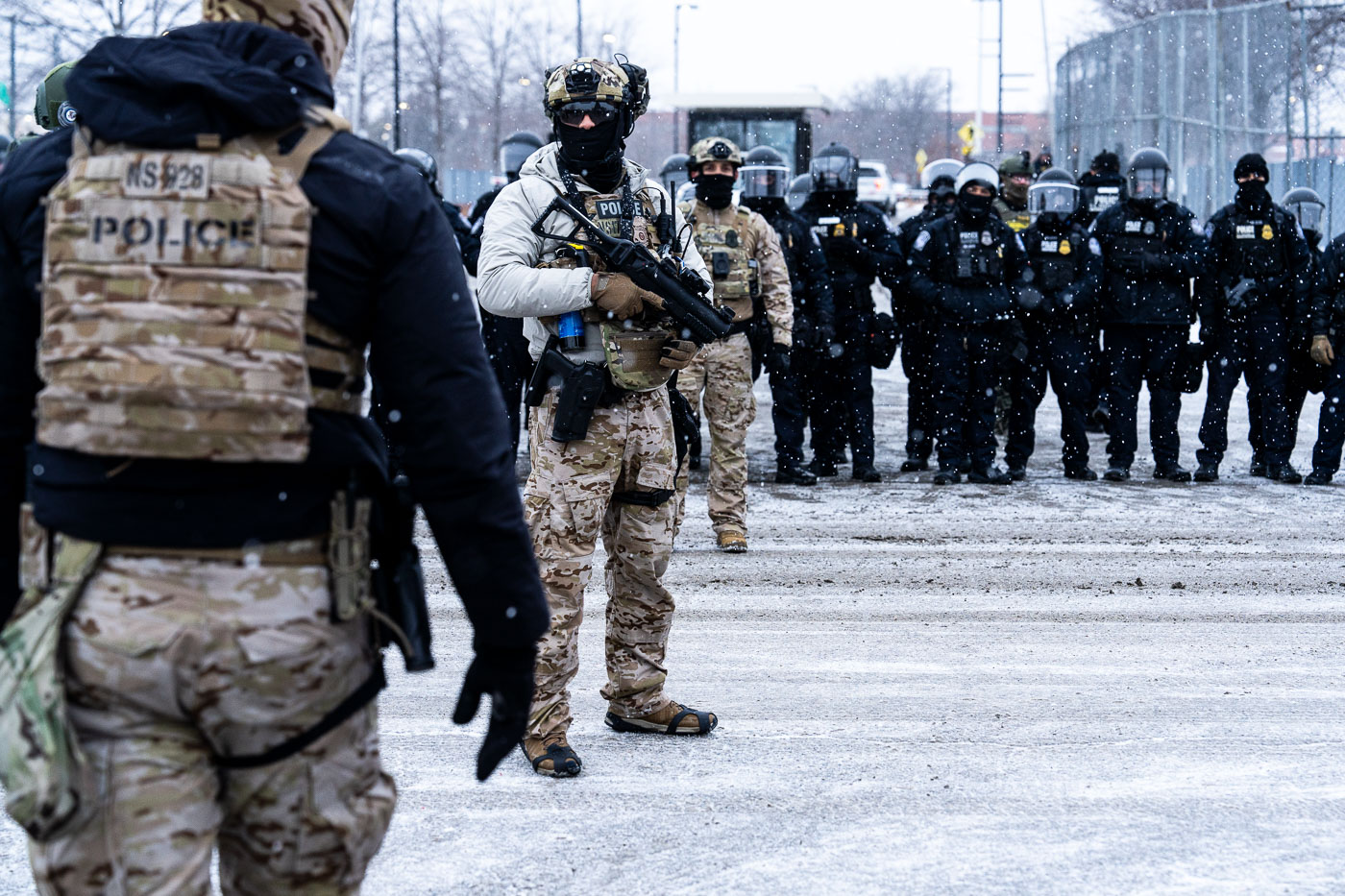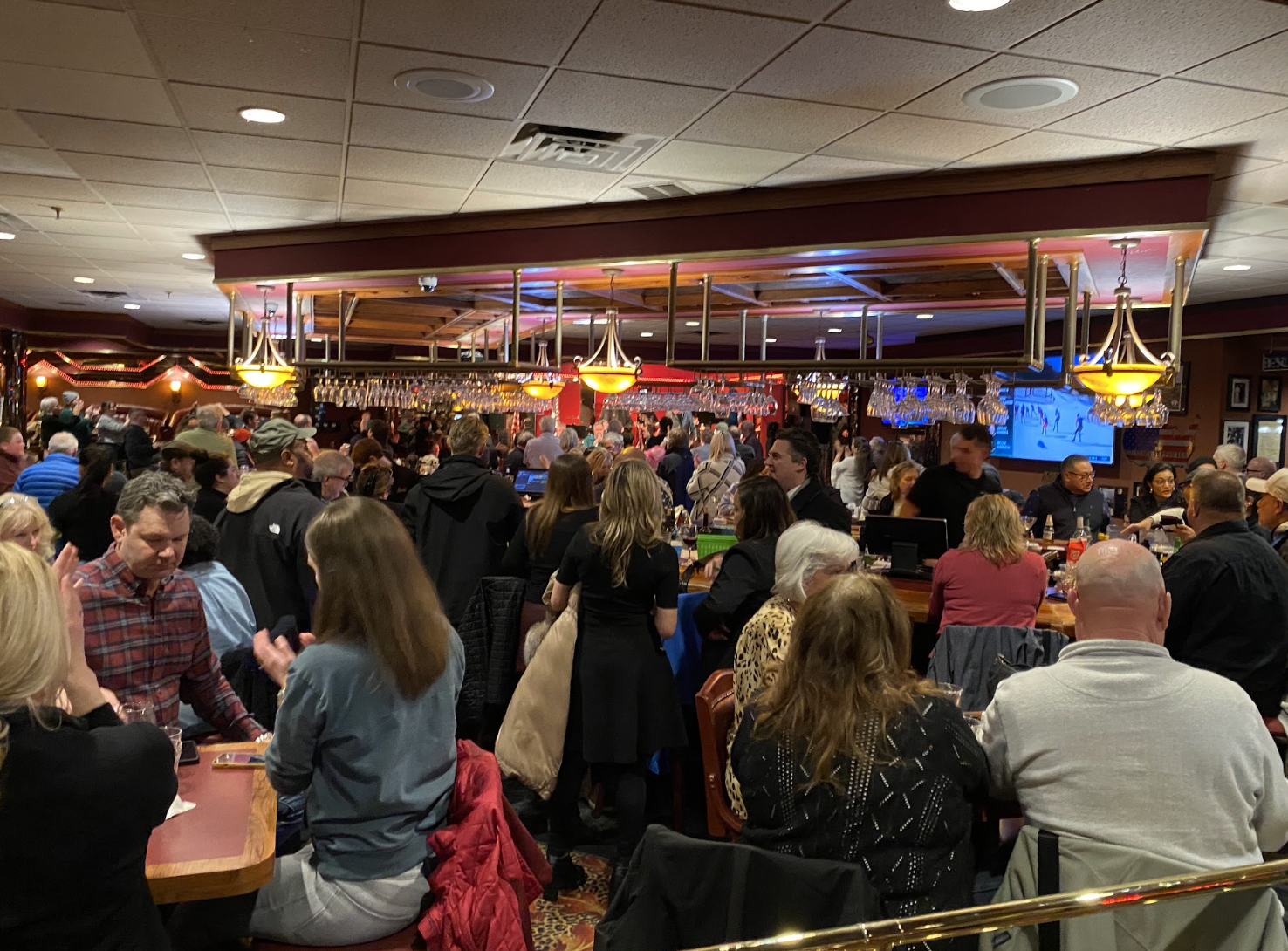I haven’t purposely sought out a David O. Russell movie in years, though I have carelessly caught myself watching a couple, accidental viewings that served their purpose—like running into an ex unexpectedly at a bar or in the produce aisle and remembering after a short, forced chat why you moved on. But duty calls, in the form of Amsterdam, a film whose breezy pace and striking caricatures battle it out with Russell’s need to address Important Matters via didactic platitudes.
And “duty” is indeed a value at the center of Amsterdam’s klutzy spree of a history lecture. The movie is named for the city where a chic nurse and two U.S. soldiers (one white, one Black) enjoy a brief post-war bohemian idyll in the early 1920s. Valerie (Margot Robbie) essentially invents modern art using bloody shrapnel she plucked from her patients, while she and Harold (John David Washington) fall for each other in a somewhat chaste interracial tryst. Meanwhile Burt (Christian Bale), a doctor whose wife’s social-climbing Park Ave. parents dispatched him to the Argonne with hopes that he’d never return, looks on (through his one remaining eye—the other is glass and prone to pop out inopportunely) with somewhat neutered appreciative wonder, narrating it all.
There’s a hint of genuine (if generalized) camaraderie in these scenes—the trio even compose a cut-up Dada song together. Then, out of a sense of duty to their fellow vets, especially the Black ones, Burt and Harold return to the U.S. to provide medical and legal services, respectively. Matters are already not going smoothly in 1933 when they’re called in to perform a semi-legit autopsy on their favorite general (Ed Begley, Jr., curiously somnolent in pre-corpse flashbacks) by his concerned daughter (Taylor Swift, for some reason). Tagged for a crime they didn’t commit, the war buddies seek aid in high society to prove their innocence, reunite with Valerie, and are pulled into a conspiracy that concerns the very fate of the Republic itself.
That’s a lot of stuff happening! And it calls for a writer/director with greater (with any) sense of economy. But at his weakest, Russell doesn’t tell stories—he piles up events, and when he’s worried you (or he) might get bored, he tosses another star at you. Less than halfway through I longed to see an unrecognizable face. His celeb-choked casts have the same wearying effect of late Woody Allen, where you feel certain actors checking off a bucket list item so much as participating in the movie. (It’s unclear why they’re so keen to work, often repeatedly, with such a notorious on-set asshole, not to mention creepy niece-groper, but such are the ways of Hollywood.) And on Russell’s part, it smacks of insecurity as well—now in his fourth Russell flick, Robert De Niro feels like some kind of security blanket for the director.
None of which would bug me much if Russell hadn’t come out of the gate as strong as any of the ’90s directorial boy wonders only to evolve into maybe the least essential of the lot. The screwball Flirting With Disaster feels as fresh as it did in ’97, and though in some ways his m.o. hasn’t changed, what once flowed is now forced, exuberance is now a feigned mania. Russell wants to be a relentless crowdpleaser and a respected auteur, but he’s lost the balance he brought to the timely questioning of Three Kings, the hit-or-miss what-the-fuckery of I Heart Huckabees. When a director willingly allows trademarks to become tics, that’s unfortunate enough. But when you can see the effort it takes, that’s truly a drag.
Amid this hubbub, the three characters at the core of Amsterdam barely get a chance to coalesce. Bale has been lauded for pawning off a new accent as a full characterization for too long, and his turn here—essentially Clive Owen’s disheveled junkie doctor from The Knick saddled with Peter Falk’s gravelly voice and disorientation—is ill-suited for the voice of moral authority the film eventually requires him to fill. Robbie is a sharper comic actor than she gets to show here, and though she looks fantastic (if more like Emma Mackey than ever) as a brunette, with fantastic hats and capes, I bet she’s funnier (and given better material to work with) in Barbie. And John David Washington (Denzel’s son) underplays his role so severely you’ve got to wonder if he’s worried the cadence and mannerisms he shares with his dad will overwhelm his performance if he lets loose.
The supporting roles are generally more rewarding, particularly Remi Malik and Anya Taylor-Joy as Valerie’s unreadable brother and controlling sister-in-law. Michael Shannon and Mike Myers have a nice little turn as Yank and Brit spymasters, respectively. Zoe Saldana isn’t given enough to do as Burt’s potential love interest, but at least her skin is not, for once, blue or green or some other extraterrestrial shade.
As the film approaches its climax with far less suspense than it pretends, the delineation between good guys and bad guys sharpens. The core conspiracy to be thwarted here is based on the real-life attempt by gold standard ideologues to install Gen. Smedley Butler in the White House via a fascist coup, and Butler truly was a hero for exposing the plot. Yet Russell’s script idealizes veterans so thoroughly you get the feeling he’d have voted for Wesley Clark for a third term if he could have. It’s hard to fault a film for saying fascism is bad in 2022, or that pins the blame for its crimes on corporate sociopaths. But it’s hard to congratulate a movie for reaching this conclusion, especially when it’s already so self-congratulatory.
And then there’s Amsterdam’s, uh, deeper message. Love should be a matter of choice, not need, Saldana’s Irma tells Burt early in the film. The script is cluttered with similar borderline clichés that repetition is supposed to deepen but never quite does. (Drink every time Burt says something about following “the wrong god home” from Europe and you’ll be as big a mess as he is by the film’s conclusion.) While love is much on Russell’s mind here, and offering a democratic sense of human interconnectedness in the face of fascist brutality is fine as far as that goes, Russell hopes to make up in last-minute speeches and soliloquies what his drama can’t express. I couldn’t help but think of W.H. Auden stoically declaring his response to another bloody catastrophe facing Europe at the end of the decade in “September 1939”: “We must love one another or die.” After the war, Auden famously insisted on changing that “or” to an “and” in all re-publications. Sometimes you aren’t so free to choose, after all.






